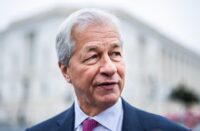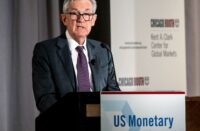China’s recent initiatives to stimulate economic growth have not yet shown widespread effects, as indicated by data and corporate earnings. This suggests that the global economy’s second-largest player may not bounce back swiftly.
Since Beijing announced financial stimulus policies in late September, certain sectors such as real estate and manufacturing have seen growth. However, companies have remained guarded in their future projections.
During an earnings call, Meituan, a leading food delivery firm, revealed that in October, the average value of hotel orders in its new travel booking sector dropped less than in previous months, on a year-on-year basis. Meituan CFO and Senior Vice President Shaohui Chen expressed confidence in the stimulus policies, stating that it would take time for their positive effects to fully unfold and stimulate consumer spending, thereby providing growth opportunities for their business.
Similar sentiments were echoed by executives from Alibaba, an e-commerce giant, and Tencent, a social media operator, during their earnings calls last month.
The increased stimulus is intended to achieve this year’s official growth target of around 5% and maintain a similar pace next year, while avoiding financial instability, said Gabriel Wildau, Managing Director at Teneo. He added that China’s top priorities remain technological self-sufficiency and national security.
Early economic indicators for November depicted a picture of steady, but not explosive, growth. The Caixin purchasing managers’ index for manufacturing showed further expansion in factory activity, achieving its highest reading since June. However, Caixin’s measure of manufacturing labor showed that employment contracted for a third consecutive month in November.
The US recently imposed another set of restrictions targeting Chinese chipmakers. President-elect Donald Trump also announced plans to impose a 10% tariff on all US imports of Chinese goods once he assumes office in January.
A survey of Chinese businesses by China Beige Book, a US-based advisory firm, revealed that markets are eagerly anticipating more stimulus as geopolitical tensions rise. The survey also showed that retail spending and home sales have improved compared to the previous year, despite a general weakness in service consumption.
China’s Ministry of Finance has hinted at providing more fiscal support next year. Investors are also keenly awaiting details from China’s annual economic planning meeting, typically held in mid-December.




